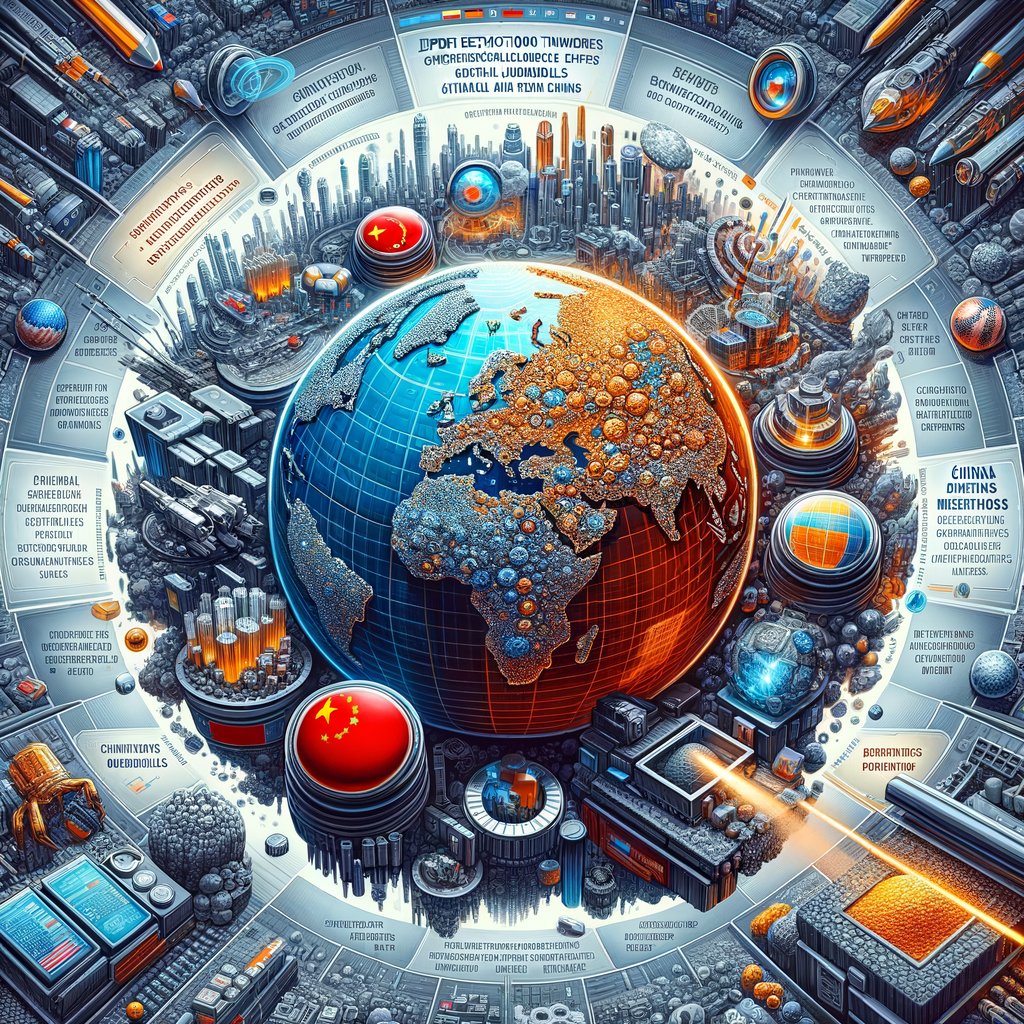Image created by AI
Escalating Trade Rift: China Intensifies Export Bans on Critical Minerals to the US Amid Growing Tensions
In a significant escalation of trade tensions with the United States, the Chinese government has imposed new bans and tightened existing restrictions on the export of critical minerals and other goods, marking a potent response to recent US curbs on its semiconductor industry. These measures, effective from Tuesday, specifically target exports of gallium, germanium, antimony, and superhard materials, alongside stricter regulations on dual-use products that have both civilian and military applications.
These moves come in the wake of the United States' actions aimed at limiting China's advancement in the semiconductor and technology sectors. Just a day before China's announcement, the US had enforced curbs on the Chinese chip industry, intensifying the ongoing friction between the world's two largest economies.
China's strategic control over the global supply of critical minerals, which are essential in various high-tech and defense-related industries, plays a crucial role in its retaliatory approach. The country is a dominant player in the mining and processing of these materials. Previously in 2023, China imposed limits on exports of antimony and graphite, vital for military uses and electric vehicle batteries, respectively.
In addition to these trade measures, the Chinese authorities earlier imposed restrictions on the export of technology crucial for manufacturing rare earth magnets, further tightening its grip on valuable resources critical for a wide range of modern technologies.
The backdrop to these decisions includes various layers of protective measures by Beijing, such as the Anti-Foreign Sanctions Law enacted in June 2021 and the creation of an unreliable entity list (UEL) that targets companies undermining China's national security interests. This list has seen the inclusion of prominent US corporations, particularly those involved in arms sales to Taiwan.
Moreover, trade measures have also been employed as a form of retaliation to specific actions by American companies. Notably, PVH Corp, the parent company of popular fashion brands like Tommy Hilfiger and Calvin Klein, faced investigations in China for boycotting Xinjiang cotton, aligning with US directives against the alleged human rights violations in the region.
These developments hint at a broader pattern of political and economic responses from China aimed at countering what it perceives as containment efforts by the US. This is highlighted by the scope and timing of the bans, which coincide with sensitive periods in US-China relations, such as the upcoming induction of the new US president. Industry experts and global markets are closely monitoring these escalating tensions, recognizing the profound implications these could have, not just for the two nations involved but for the global economic and strategic landscape.
As the situation unfolds, businesses and policymakers worldwide are recalibrating their strategies to navigate this complex terrain, where economic policies are increasingly used as extensions of geopolitical power plays.










